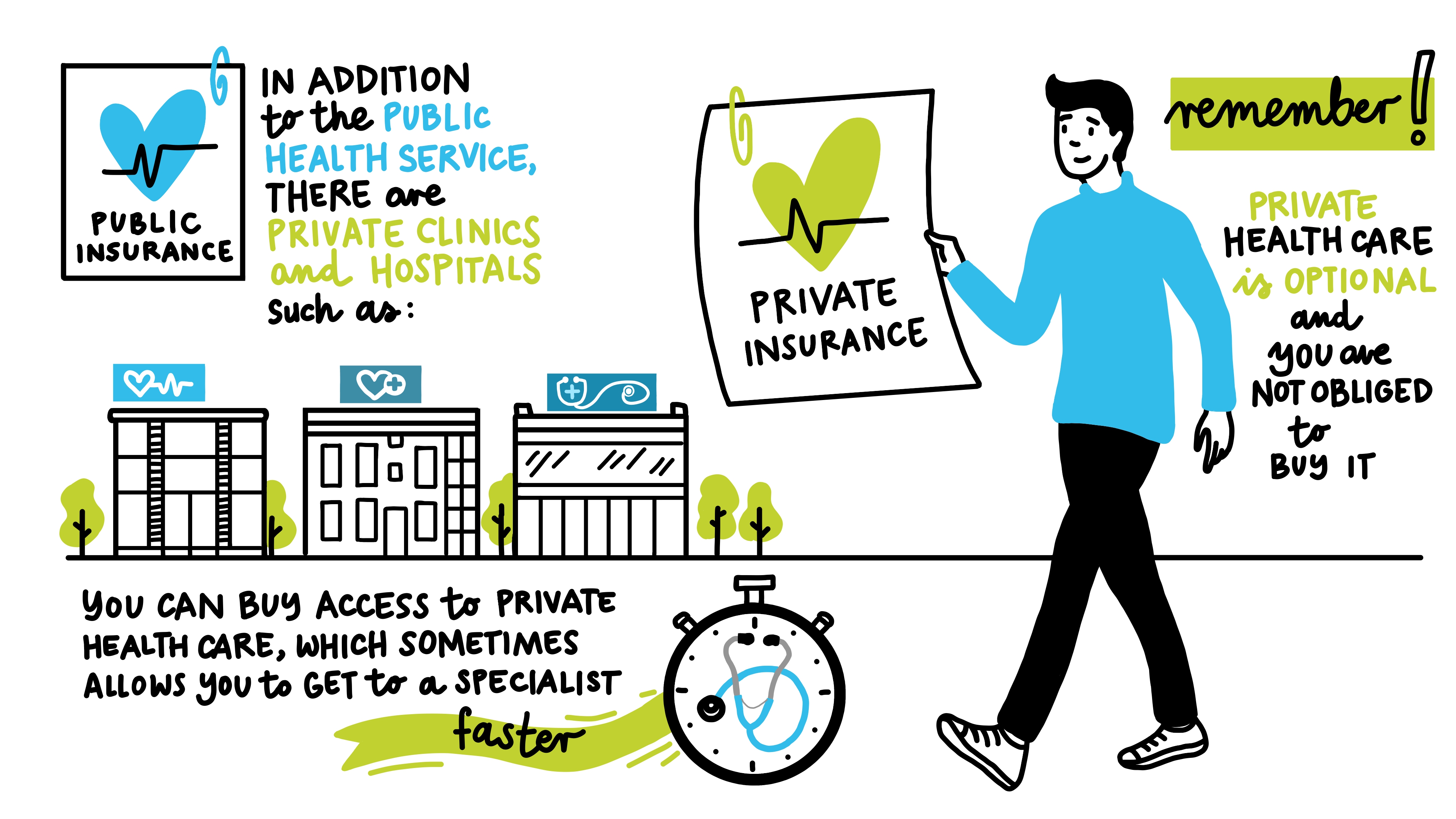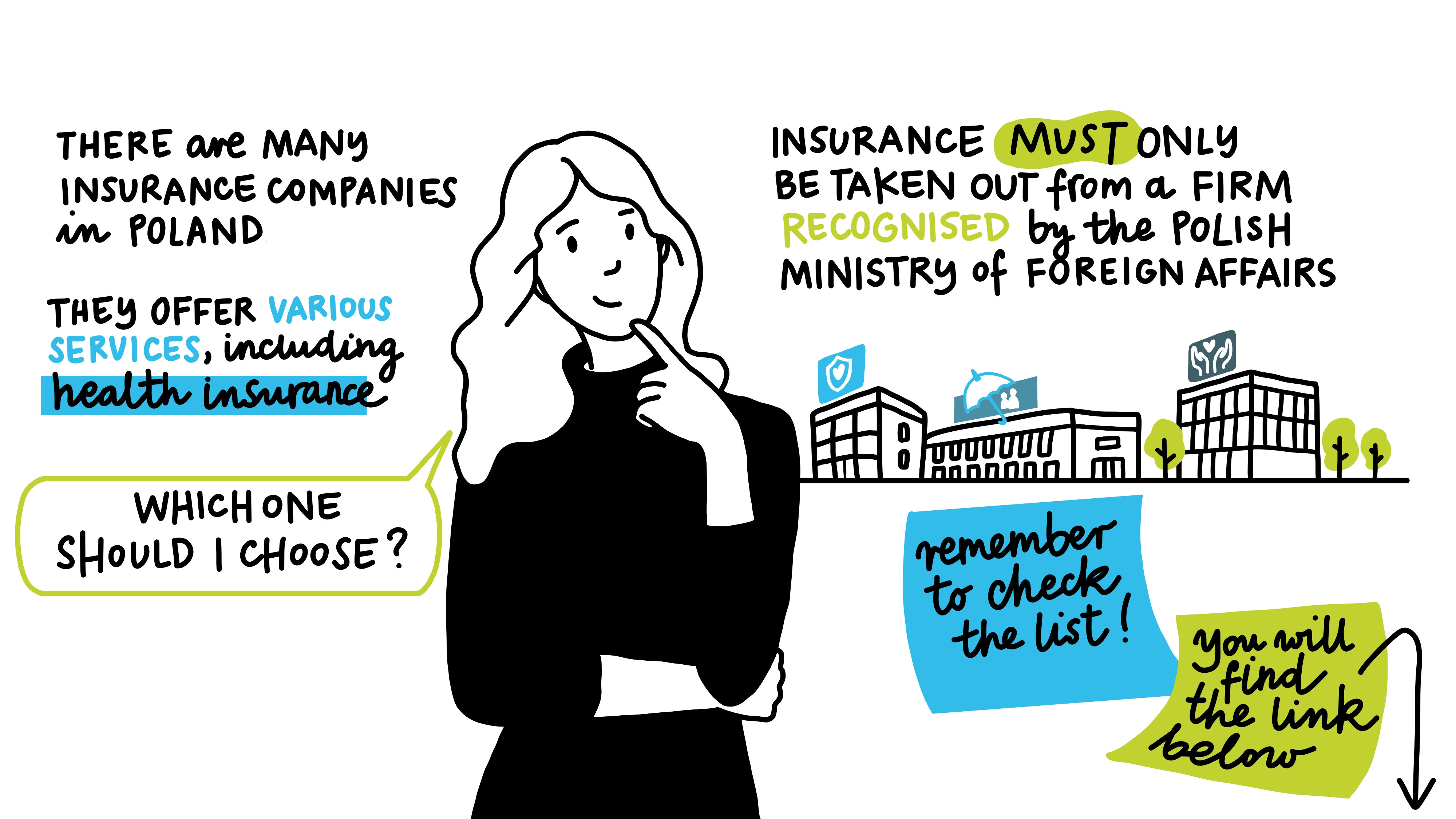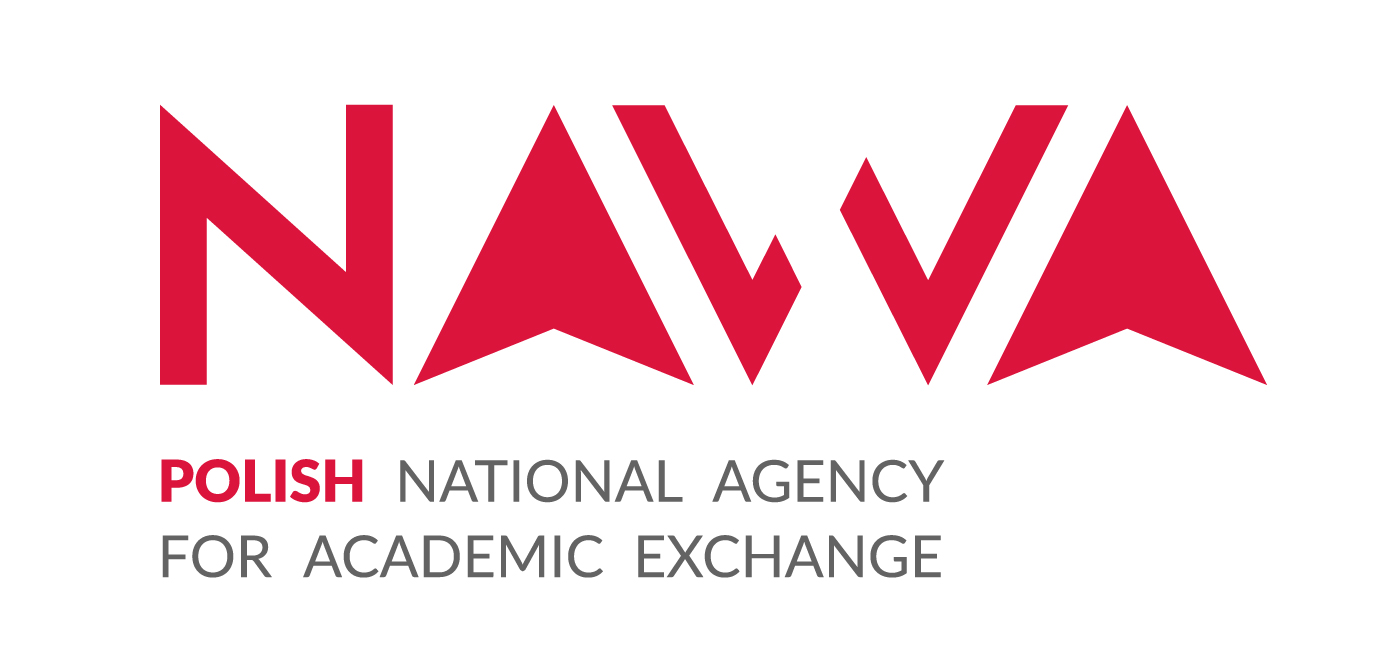There are two types of healthcare in Poland:
- public healthcare (free of charge) financed through the National Health Fund called NFZ. To benefit from the NFZ healthcare, you must be insured with the public Social Insurance Institution — ZUS.
- private (paid) — fees, terms, and conditions depend on the insurance policy you’ve bought and the contract you’ve signed. The cheapest options only include basic services, e.g.: visits to general practitioners or certain specialist doctors. More advanced services, e.g. more complicated dentistry treatment, giving birth, operations or hospitalization, require more expensive insurance plans.
How to obtain health insurance in Poland?
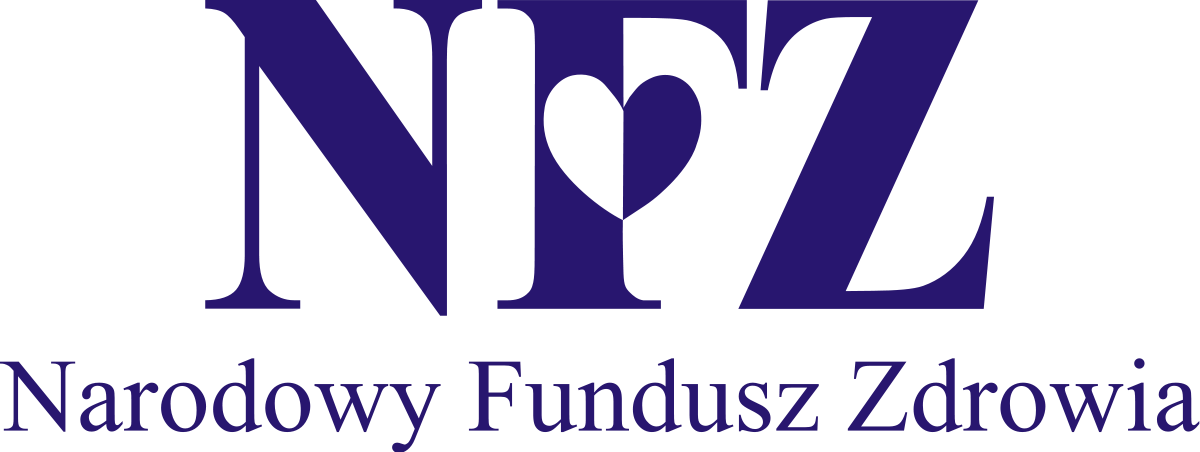 Public healthcare in Poland is financed through the National Health Fund (in Polish: Narodowy Fundusz Zdrowia, or NFZ). All persons employed in Poland, including foreigners, are obligated to pay health insurance fees, which are deducted from their salary. This is usually done by the employer. Being employed (insured with ZUS/NFZ) allows foreigners to insure their family members as well.
Public healthcare in Poland is financed through the National Health Fund (in Polish: Narodowy Fundusz Zdrowia, or NFZ). All persons employed in Poland, including foreigners, are obligated to pay health insurance fees, which are deducted from their salary. This is usually done by the employer. Being employed (insured with ZUS/NFZ) allows foreigners to insure their family members as well.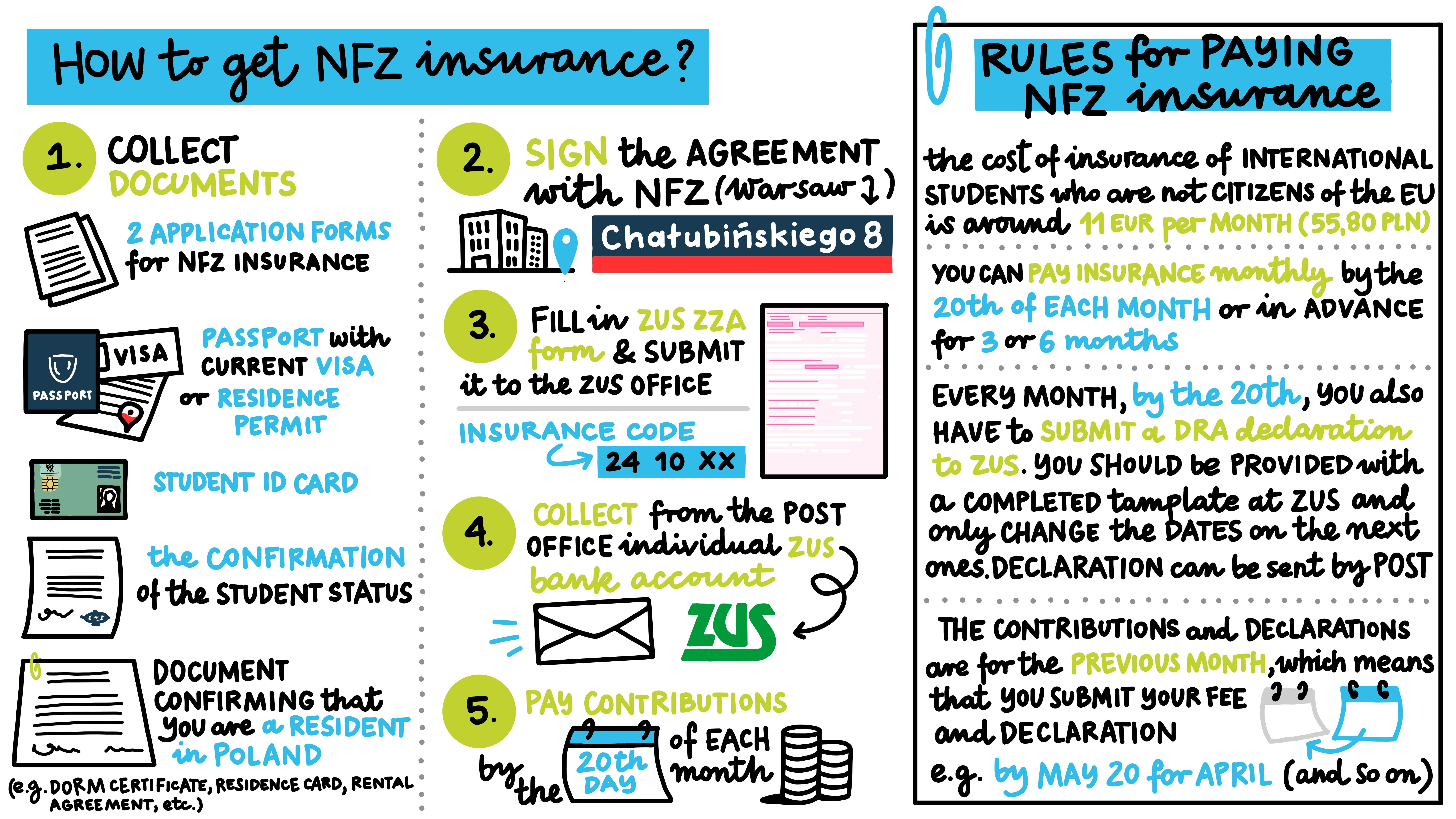
![]()
If a person staying in Poland is not obligated to be insured, they can still apply for public health insurance if they wish to do so. In this case, they must sign an agreement with the NFZ and, after that, submit a document called ZUS ZZA to the Social Insurance Institution (in Polish: Zakład Ubezpieczeń Społecznych, or ZUS).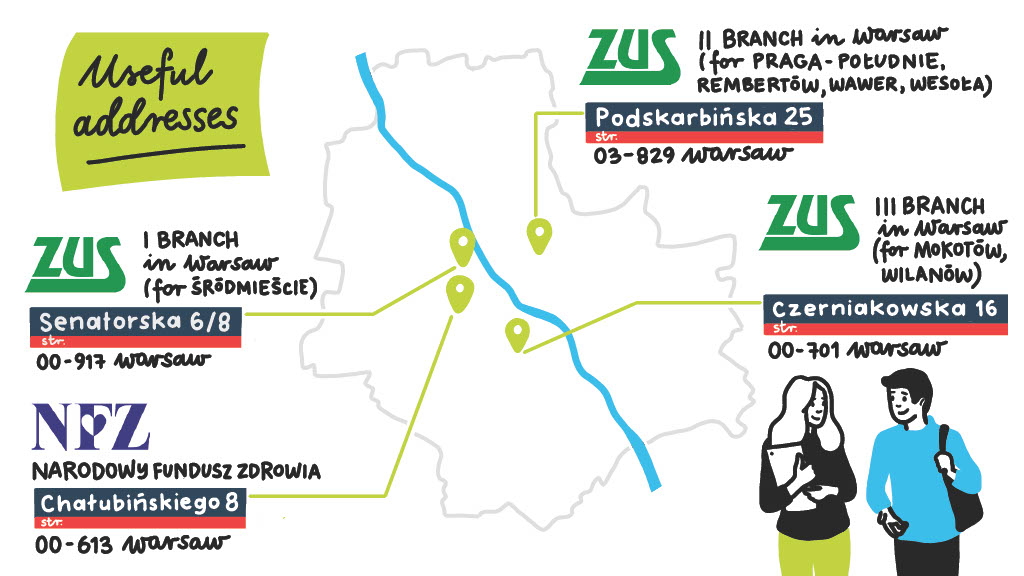
![]() In terms of private healthcare, insurance plans vary between providers, so it is best to look into the offers of multiple health insurance companies before making a decision.
In terms of private healthcare, insurance plans vary between providers, so it is best to look into the offers of multiple health insurance companies before making a decision.
How to receive medical attention/treatment?
When it comes to public healthcare, in most cases, it is not possible to make an appointment with a specialist by yourself. The first step is to visit a general practitioner’s office (in Polish: lekarz pierwszego kontaktu or lekarz rodzinny). If needed, they may give you a referral (in Polish: skierowanie) to see a specialist or to undergo further medical examination.
A referral is not required in the case of the following specialists:
- oncologist,
- gynaecologist,
- psychiatrist,
- venereologist,
- dentist.
How to make an appointment with a general practitioner?
Before your first visit, you must register at the NFZ clinic closest to your place of residence. To do that, you will need to provide proof of identity (a passport or an ID card) and proof of health insurance (e.g.: payslip, in Polish: RMUA which can be obtained from the HR office or downloaded in SAP). After registering, you may schedule an appointment with a general practitioner.
Remember that only some doctors speak English, so you may not be able to register for the visit the next day. It is useful to take a Polish speaker with you, as not all clinic employees speak English.
How to get a prescription?
In Poland, like many other countries, some medications cannot be obtained without a prescription (in Polish: recepta). Nowadays, prescriptions are mainly electronic (e-recepta) – they are sent either as an SMS or as an email. To fill the prescription at a pharmacy, you will need to give your PESEL number and a code from the electronic prescription. If you do not have a PESEL number, the prescription will be given to you using your passport number.
What to do in case of an emergency?
In case of an emergency or an urgent health threat (severe shortness of breath, sharp chest pain, severe allergic reactions, extensive burns, etc.), you can request help from the Emergency Medical Services – by calling 999 or 112. You may also go to the emergency room in the nearest hospital (in Polish: szpitalny oddział ratunkowy, or SOR).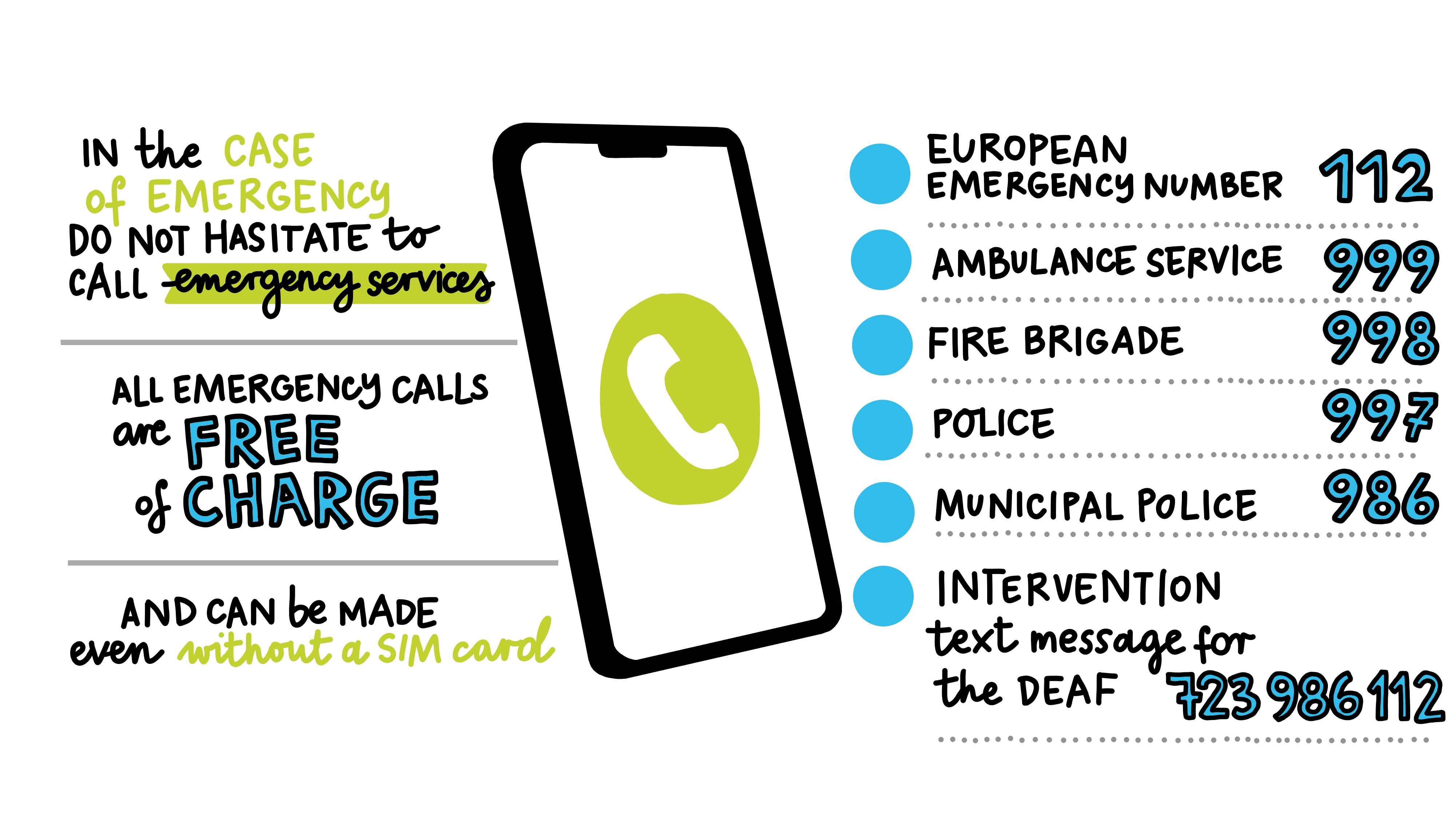
![]()
Useful vocabulary:
- doctor — lekarz/doktor
- General Practitioner (GP) — lekarz pierwszego kontaktu
- Paediatrician — pediatra
- dentist — dentysta
- nurse — pielęgniarka
- primary care centre — przychodnia
- registration — rejestracja
- referral — skierowanie
- prescription — recepta
- pharmacy — apteka
- medication — lekarstwo/lek
- vaccination — szczepienie
- Emergency (room) — SOR
- hospital — szpital
